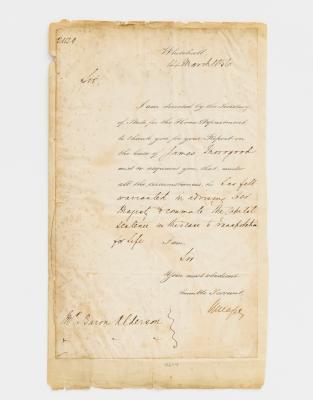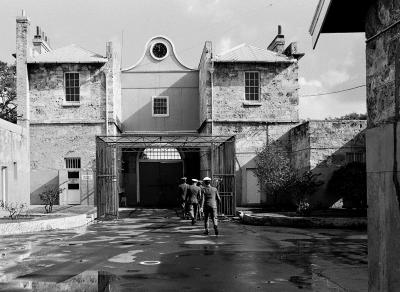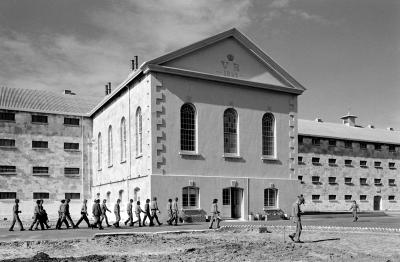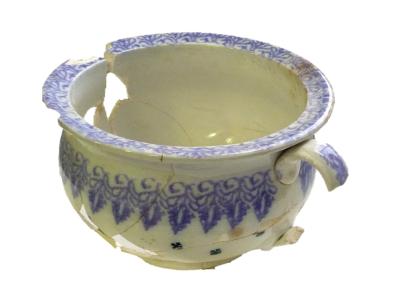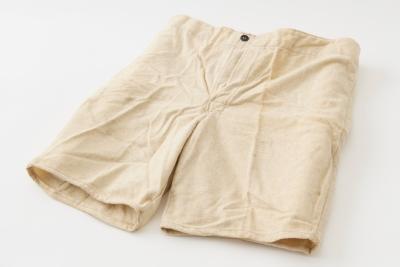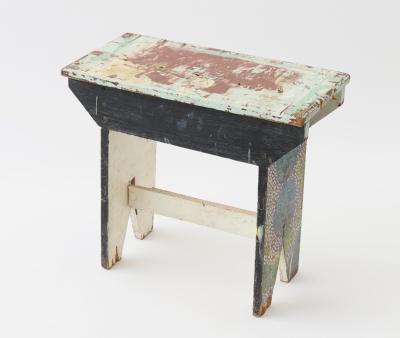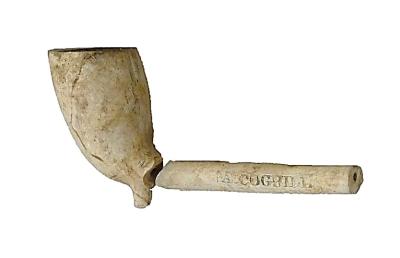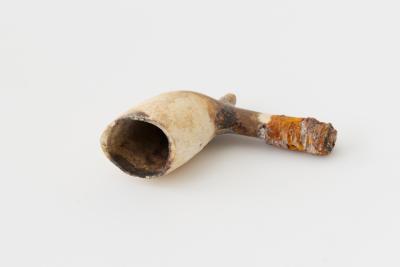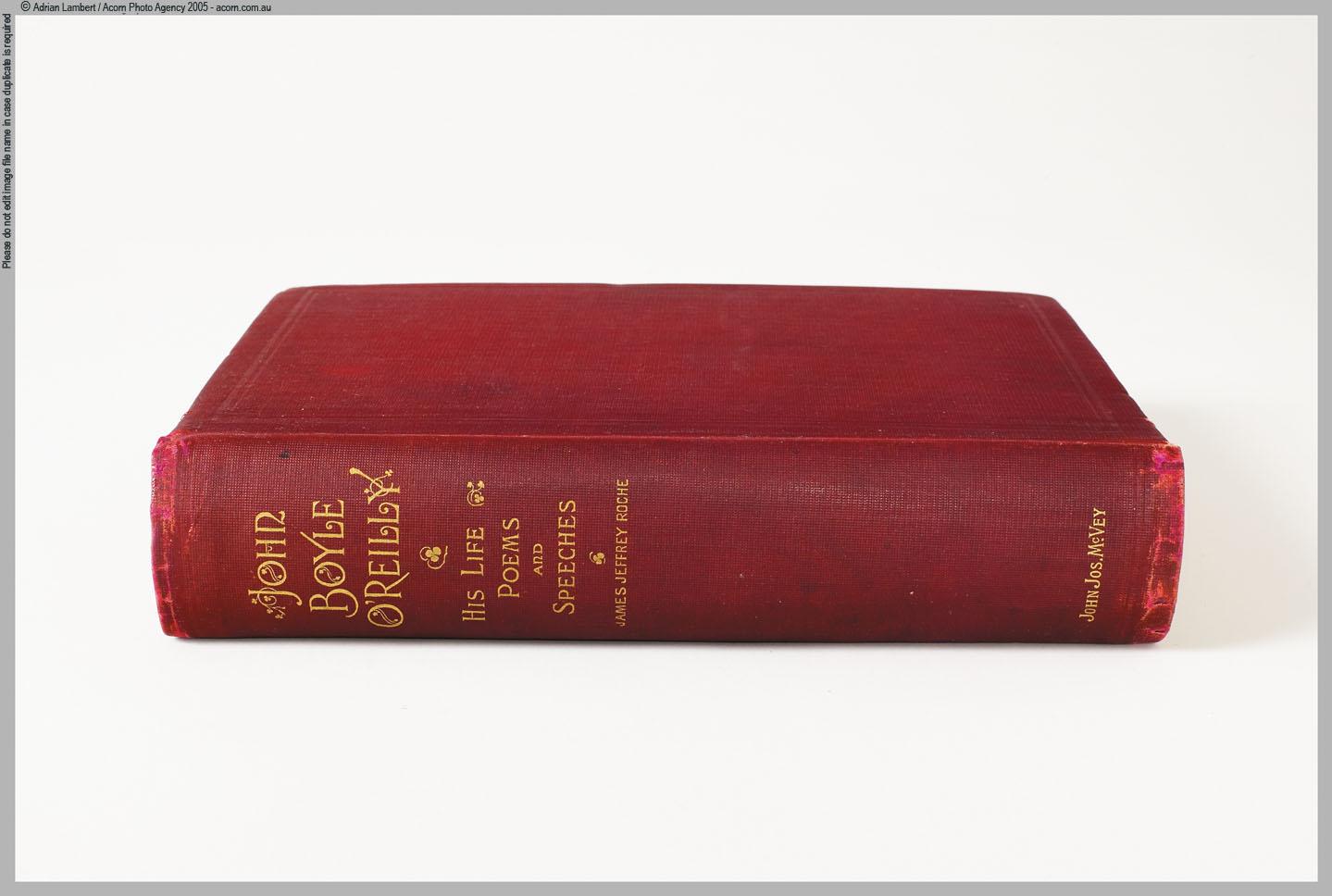Life of John Boyle O'Reilly Book
1891Dark red, hardback book, titled 'John Boyle O'Reilly. His Life, Poems and Speeches'. Edited by Mrs John Boyle O' Reilly. The title, along with the author, publisher's name and shamrocks ornately decorate the spine in gold. The book is 790 pages long, has no dust jacket, a few illustrations and black type on white pages. Written inside the front cover in pencil '$220', also an inscription in black ink on the first page, which reads '8/4/21 / Dearest Mother Kenney / Read this once in / awhile and think of me. / Sorry I couldn't stay until you / arrived but had to go to where I could / earn my salary to send to ''me wiff.'' / Hope you have a mighty good time. / Lovingly / Syd'
Biography of John Boyle O' Reilly, which was purchased for the Catalpa exhibition at Fremantle Prison in 2006.
Details
Details
John Boyle O'Reilly (1844-1890), author, editor and patriot, was born on 24 June 1844 in Drogheda, Ireland, the second son of William David O'Reilly, master at the National School attached to the Netterville Institution for Widows and Orphans at Dowth Castle, and his wife Eliza, née Boyle. He was educated by his father, apprenticed at 11 as a compositor to the Drogheda Argus and at 15 joined the Guardian at Preston, Lancashire, where he became a reporter. Involved in the Fenian movement, he returned to Ireland in 1863, enlisted in the 10th Regiment and concentrated on persuading soldiers to join the revolutionary organization. His sedition was not suspected until he was betrayed in February 1866. Court-martialled on 27 June at the Royal Barracks, Dublin, he was convicted of having withheld knowledge of 'an intended mutiny' and was ordered to be shot on 9 July. This sentence was commuted to life imprisonment and later to twenty years transportation. After two years in English prisons O'Reilly was transported with sixty-two other Fenian convicts onboard the Hougoumont, arriving in Fremantle on 10 January 1868. In his first weeks at the Convict Establishment O'Reilly worked with the chaplain, Father Lynch, in the Prison's library. O'Reilly was transferred to a road party at Bunbury but was soon given clerical duties and entrusted to deliver the weekly report to the local convict depot. Befriended by the local priest, Patrick McCabe, and a settler, James Maguire, O'Reilly planned to escape. Foiled in his first attempt, he hid until he could board the American whaler Gazelle on 18 February 1869. After narrowly escaping capture at Roderiquez Island, he transferred to the American Sapphire at St Helena and joined the Bombay as a deckhand at Liverpool, before arriving in Philadelphia on 23 November. O'Reilly promptly became an American citizen and settled in Boston, working first as a journalist, then editor of The Pilot newspaper. A devout Catholic and ardent democrat, he advocated Home Rule for Ireland but now favoured constitutional reform rather than physical force and in the Pilot criticized the Fenian invasion of Canada in 1870. In 1875 he and others devised a daring scheme to rescue six Irish political prisoners still in Fremantle Prison. The plan involved the purchase of the American whaler Catalpa, which was sent to Bunbury to await the arrival of a boat bringing the escapees from Fremantle. Nearly foiled by squally weather and a skirmish with a government ship the Georgette, the mission was successful and the Fenians reached New York safely on 19 August 1876. O'Reilly was gregarious and always surrounded by a host of friends; he won repute in America as a poet and lecturer. Reminiscent of Western Australia, his novel Moondyne appeared in 1879; described as 'an idealistic extravaganza', it tells the story of an escaped convict who returned to the colony as comptroller-general of convicts to reform the penal system. In 1885 he was awarded an honorary Doctor of Law by the University of Notre Dame, Indiana. A fine athlete and canoeist, he compiled Ethics of Boxing and Manly Sport in 1888 and in 1889 edited The Poetry and Song of Ireland. A complete edition of his own poems was published posthumously by his wife in 1891. O'Reilly had married Mary, daughter of John Murphy and his wife Jane, of Charlestown, Massachusetts, on 5 August 1872. On 10 August 1890 he died at Hull from an overdose of chloral which he normally took as a cure for insomnia. He was buried in Holyhood cemetery, Brookline, survived by his wife and four children.
